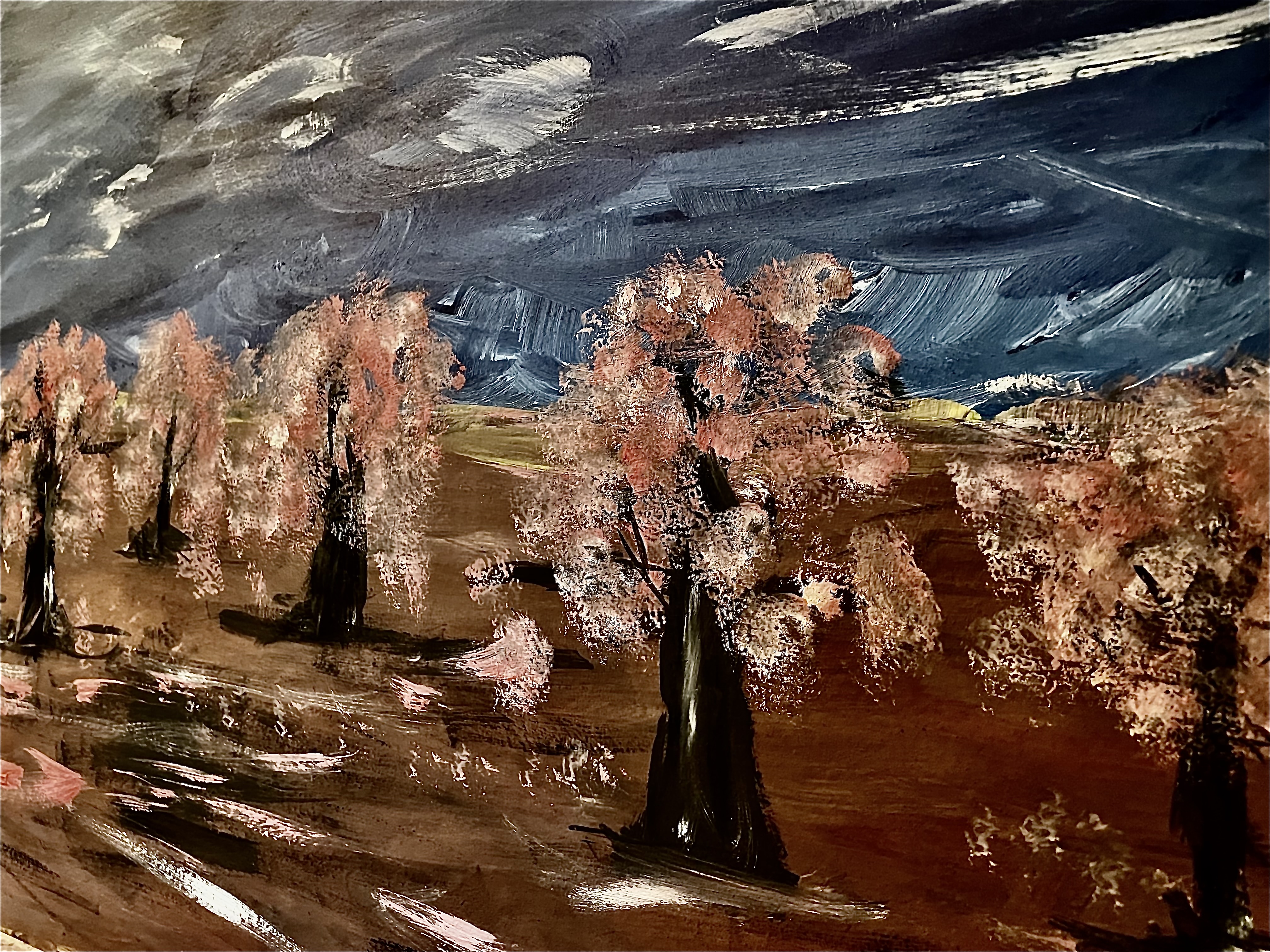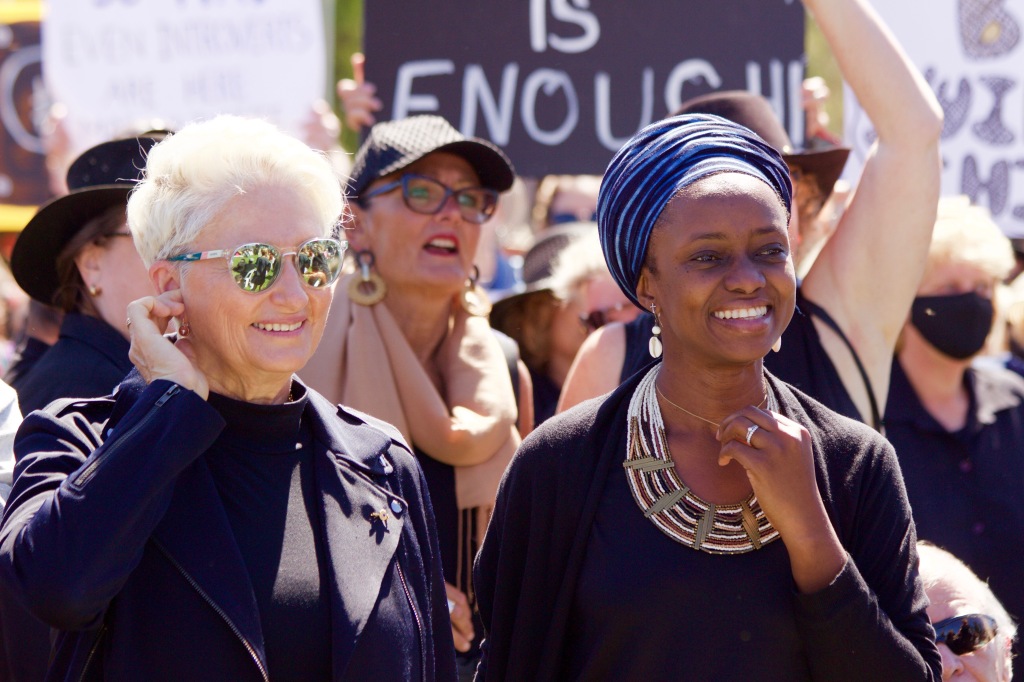

















By Mike Welsh
I feel for Barnaby Joyce. One sloppy error and he’s a national joke. To be ridiculed for lying on your back, rat arsed, in a Canberra street while making a private phone call is just “UnAustralian”.
Who amongst us hasn’t bungled the balance between medicine and alcohol?
I have. And badly.

I can pinpoint the exact day it happened. September 24, 1977 when the member for New England was barely a “two pot screamer”. Yet to taste the amber liquid which would famously and frequently trip him up later in life.
Two days earlier I’d scored the last appointment of the day with the redoubtable Launceston MD Dr Harold Blackburn. Today the good doc (think larger than life Australian actor Noel Ferrier) would be a nightmare for the AMA but back in the day he was just another colourful character with drink problem. Weeks earlier I’d copped a smack on the nose for failing to keep my big mouth shut…dexterity was not my strong suit. Harold quickly diagnosed a lacerated something or other and with the polished swish of the hand doctors seem to have, swiftly wrote out a script for a medicated nose spray. Waiting room finally empty for the day he then washed his hands and adroitly swivelled his rotund girth and reached behind him and fished out a flagon of McWilliam’s Royal Reserve Dry Sherry. “Would you like a drink laddy?. No thank Doc. “Gotta go and pack”.
The following day I caught a TAA flight to Melbourne heading for the VFL Grand Final between Collingwood and North Melbourne.
Game day dawned and with roughly 6 cans of Carlton and United in my sports bag I headed with several of my more cultured contemporaries , to the “G”.
Several hours later the siren blasted to end the big game. A deathly silence then swept the iconic sporting venue. The scoreboard showed both teams had ended up on 76 points each. A draw.
For only the second time in history a drawn VFL Grand Final . As exhausted players lay flat on their backs across the hallowed turf, 108,224 bewildered fans looked at each other mouthing “what happens now?’. A draw. No winner. I was possibly the only person in that shocked crowd totally unaware of the historic event which had just unfolded before me. Apparently the good doctor failed to warn me of the dangers of mixing medication with alcohol. Time for a medical malpractice claim may have elapsed.
I had mixed the nifty little nose spray with roughly 10-12 cans of CUB’s best beer. Deadly mix.

We eventually found our way back to our digs, The Southern Cross Hotel in the CBD , and to the subterranean bar on which we’d left a lasting impression the night before. At it’s threshold we were met by a very cross and inhospitable barman who insisted on inserting a cruel caveat…… “before I serve any of you Tasmanians dickheads one drop of beer, promise you won’t be back for the replay next week”.
In no condition to negotiate with an angry Tasmanian hating barman I headed up to my room. As I entered a lift I met a large broad shouldered man whom I vaguely recognised (I had after all polished off roughly 15 cans of beer and a couple of squirts of nasal spray).
I told him I’d been to the footy. The astute QC had already guessed my recent movements and offered, in a cultured and booming voice “had a big day comrade”. It was the EX PM E G “Gough” Whitlam. I think. Mixing medication and alcohol is apparently not wise when encountering Prime Ministers past.
The following morning still unaware of the drawn “Grannie” I headed down into the hotel lobby and ran into another Ex PM. John Gorton.
The makers of that excellent contemporary doco on Ex PMs “Nemesis” may wish to chat with me on a possible theme. Idiots who mix booze with ex PMs.


Today is my 70th birthday. I’m extremely grateful to be gainfully employed and I no longer smelling of urine. Apparently. No embarrassing reek…not even a vague waft of wee surrounds me these days.
A decade ago and frustratingly unemployed I began a piss take piece in Canberra’s City News with ….”I’m going to buy myself a 60th birthday gift . A pet monkey which I can train to rip the face off the next moron who tries to buoy me with the stupid saying: “Sixty is the new fifty.”
I didn’t buy that bullshit nor did I buy that monkey. Homer Simpson was full of shit. Apparently it’s illegal.
Dodgy mathematics aside there was another insidious concept seeping into fashion.
Initially I thought it was my outrageous responses to “Outstanding Achievements”…inventing the marketing phenomenon of “happy Hour”, convincing Bruce Springsteen to lift “I’m On Fire” from his “Born In The USA” album and release it as a radio single.
They smelled the urine. Too old.
Despite forensically sandblasting my resume of any evidence of “advanced” age, I could not score a job interview after firing off scores of applications for scores of jobs. How did those clever HR people detect that I was too old to be of any practical use to society?
It’s not rocket science. HR is a calling which majors in pinpointing those who are “on the nose”.
They immediately sniffed an old person application and swiftly fired off the stock standard syrupy letdown…….”thank you for your recent application for the above position. Unfortunately your application was not successful on this occasion. Your time and interest in the role is appreciated and we would like to assure you that full consideration was given to all applications received”.
A long running plea from a long standing PM that “ mature” workers consider postponing retirement until their 70s sounded promising. Turned out that our “lifetime of unique skills and expertise” which were still “desperately needed” was no more than political pocket pissing.

Now with 3 score years and 10 on the clock, I’m more “mature” in both senses of the word, and way less cynical. Employed, and not a trace of bitterness nor redolent of the above mentioned yellow river which continues to savagely cut its ageist way through the wide brown land.
As the Simpson’s bully Nelson Mandela Muntz says….”Smell Ya later.”
















The Christmas Truce of 1914 desiringGod.org

By Greg Morse a staff writer for desiringGod.org and graduate of Bethlehem College & Seminary.
Each soldier had a distinct family, laugh, voice, name, and soul. They were sons, fathers, husbands, brothers, fiancés. In another life, some had been clerks, shopkeepers, students, ministers, teachers. Beyond the heart’s capacity to reason, 6,046 were killed every day in the Great War — a war that lasted 1,566 days. If we gave each fallen soldier thirty seconds of silence, we would be sitting still for nine unbroken years.
Unbroken — something that did not describe many of these men. A 19-year-old Irishman, serving as Second Lieutenant in the British army, gives one of the most chilling descriptions of what he observed as he fought on the frontline:
The frights, the cold, the smell of H.E. [high explosives], the horribly smashed men still moving like half-crushed beetles, the sitting or standing corpses, the landscape of sheer earth without a blade of grass, the boots worn day and night till they seemed to grow to your feet. (Surprised by Joy, 240)
Men, horribly smashed, moved like half-crushed beetles. “Standing or sitting corpses.” The young Irishman, very different from the great C.S. Lewis he would later become, wrote poetry about seeing men’s stomachs “fall out on their knees.” Men, with someone waiting for their return; men, made in the image of their Creator; men, some of whom were not much more than children — reduced to twitch and tremor like dying insects. Physically on the battlefield, or psychologically when traumatized, they were carried home.
Amidst humankind’s greatest parody of hell on earth to date, a song broke into the darkness of World War I. The war had not ended, but light had dawned for a night. Many present recounted it as one of the highlights of their lives. Soldiers wrote that they would not have preferred to celebrate anywhere else that Christmas Eve, 1914. The stoic Wall Street Journal would even report, “What appears from the winter fog and misery is a Christmas story, a fine Christmas story that is, in truth, the most faded and tattered of adjectives: inspiring.”
Josef Wenzl, a soldier in the German infantry that night, described it to his parents in a letter: “Between the trenches, the hated and bitter opponents meet around the Christmas tree and sing Christmas carols. This once in a lifetime vision I will not forget.” In a functional graveyard appropriately named “No-Man’s Land,” one of the most inspiring Christmas stories of the century unfolded.
Five months earlier, the curtains of war opened, unveiling combat machines the world had never seen. Mobs of soldiers marching side by side in traditional fashion were systematically mowed down by machine guns and devoured by hailstorms of artillery fire.
To escape the barrage of bullets and explosions, men burrowed into the ground. Thousands of miles of zigzagged ditches lined both Eastern and Western fronts, making the trench the symbol of the First World War. Both sides held trenches paralleling the other, usually about 100 to 400 yards away.
What was trench life like? Dan Carlin suggests imagining yourself going out in your backyard, digging a hole, and living there day after day. Then add decaying bodies and rotting limbs. Also, flood them with constant rainfall which would make your boot-wearing feet balloon and ache (trench foot) and the decomposing bodies “float to the surface.”
Finish it off with rats “that were the size of cats,” an endemic of fever-spreading body-lice, never-ending mud, moans and whimpers from mostly-dead men, and a stench that allowed you to smell the front line long before you could see it — never forgetting that thousands of men, paid to kill you, squatted a football field away and possessed the most lethal weapons known to man at that time. In cold, wet holes in the ground lived millions of soldiers at war.
Leading up to Christmas Eve on the Western front, the weather started the truce: it got colder. The frost not only brought an idyllic, “fictional Christmas,” but more importantly, it hardened the liquefied mud of the trench floors.
As the sun began to set, Albert Moren of the Second Queen’s Regiment described what happened next:
It was a beautiful moonlit night, frost on the ground, white almost everywhere; and . . . there was a lot of commotion in the German trenches and then were those lights — I don’t know what they were. And then they sang “Silent Night.” I shall never forget it. It was one of the highlights of my life.
“Stille Nacht, Heilige Nacht” (“Silent night, holy night”) danced past putrefying corpses lying in “No-Man’s Land” to crouch in enemy trenches. The lights lining the top of German trenches, which Albert failed to discern, were thousands of candled Christmas trees.
Private William Quinton, of the Second Bedfordshire Regiment, described it this way:
Something in the direction of the German lines caused us to rub our eyes and look again. Here and there, showing just above their parapet, we could see very faintly what looked like very small colored lights. . . . We were very suspicious and were discussing this strange move of the enemy, when something even stranger happened. The Germans were actually singing!
Some assumed it was a sniper trap to get Allied soldiers to peer over their parapets. However, as spontaneous carols, banter, and shouts of “Merry Christmas” shot between the miles of trenches, suspicions soothed. Germans even threw boots full of chocolates and shouted out in the enemy tongue, “English soldiers! English soldiers!” “Happy Christmas! Where are your Christmas trees?” “No shoot tonight. Sing tonight!” “You no shoot. We no shoot!”
Emboldened by song and reciprocated joking, a few men took things further: they requested to meet in the middle of “No-Man’s Land.” Seemingly suicidal, a few soldiers began climbing from the safety of their trench, risking their lives to socialize with the mortal foe. Both sides watched, with their hands on their rifles. Slowly, the trenches began lightening. “The Christmas spirit” as historian Modris Eksteins described, began to “conquer the battlefield.”
After thousands of men gathered the night before, tens of thousands would gather in “No-Man’s Land” on Christmas Day. They gathered — illegally — to sing, exchange gifts of cigars and puddings, and talk (as best they could). One Brit gave a German a haircut. Some reportedly raced bikes they found in abandoned houses. They fought ferociously — on the soccer field, laughing hysterically at the Scots whose behinds shone as their kilts flapped in the wind.
They also took the opportunity to bury the festering corpses. They conducted some joint funeral services which moved both sides profoundly. The whole scene “was absolutely astounding,” Captain Sir Edward Hulse of the Scots guard commented, “and if I had seen it on cinematograph film I should have sworn it was faked!”
The truces ended as mysteriously as they began. Sentiments were shared, such as, “Today, we have peace. Tomorrow, you fight for your country; I fight for mine. Good luck!” Although a good number of sectors extended the truce through New Year’s Day, one way or another, the carnage inevitably resumed. This was a truce, not peace. Many of the soldiers who celebrated the Christmas Truce of 1914 would not survive the war.
Too often, this story concludes with humanist commentary upon the goodwill of man shining amidst utter barbarity. Vague colors of hope and peace shine above parapets. We forget that the miraculous truce dawned on the celebration of a child’s birthday — not Muhammad’s, Buddha’s, Darwin’s, Nietzsche’s, or Gandhi’s — but Jesus Christ’s.
This is fitting, not only because angels speak of peace on earth at his birth (Luke 2:14), nor merely because his is the only name given among men by which they must be saved (Acts 4:12), but because he himself is the Great Terms of Christmas Truce for all mankind. What appeared from the winter fog and misery of a world submerged in darkness is a Christmas story, that is, in truth, the most faded and tattered of adjectives: redeeming.
This story found humanity, since Genesis 3, standing upright in his trench, not minding his God or his warnings. He sang, “Peace, peace,” to his neighbor where there was no peace. And God’s response: more scandalous than meeting for a soccer game. His gift: costlier than cigars or plum pudding. He had more than chocolates to throw or haircuts to give.
To us a child was born; to us a son was given (Isaiah 9:6). “And he shall be their peace” (Micah 5:5). As Spurgeon heralded, “The swaddling band with which he was wrapped up was the white flag of peace. That manger was the place where the treaty was signed.” And that treaty was signed in his blood. Men emptied their wrath. Satan spent his ammo. Christ drank damnation under the doomsday device of the divine (Isaiah 53:10). In the No-Man’s Land of Calvary, he secured “peace by the blood of his cross” (Colossians 1:20).
While all of heaven looked on, we have heard a commotion in God’s trench. He sang a gospel song on that silent night, that holy night: “This is my beloved Son, with whom I am well pleased; listen to him” (Matthew 17:5). And he still sings, calling rebels from their rat-infested hole to meet his glorious Prince of Peace. Only through faith in him can we have “peace with God” (Romans 5:1). And this peace bestows adoption, a kingdom, and fullness of life with him forever.
Greg Morse is a staff writer for desiringGod.org and graduate of Bethlehem College & Seminary. He and his wife, Abigail, live in St. Paul.
By Mike Welsh
FROM MY CITY NEWS COLUMN “SEVEN DAYS” OCT 2019
YEAR out from the next election, ACT Opposition Leader Alistair Coe has candidly confessed it will take a miracle to loosen Labor’s almost two-decade grip on power in the capital.

Miracles aside, all the party needs is to appoint Mark Parton leader. The former radio man is ready made for the role, principally because he is the exact opposite of the string of dry, beige, awkward Canberra Liberal leaders who have spectacularly failed to pressure successive Labor governments.

He is genuinely enthusiastic about politics, people like and respond to him and, tellingly, he’s had a career outside politics endowing him with that rare but essential gift – the common touch.